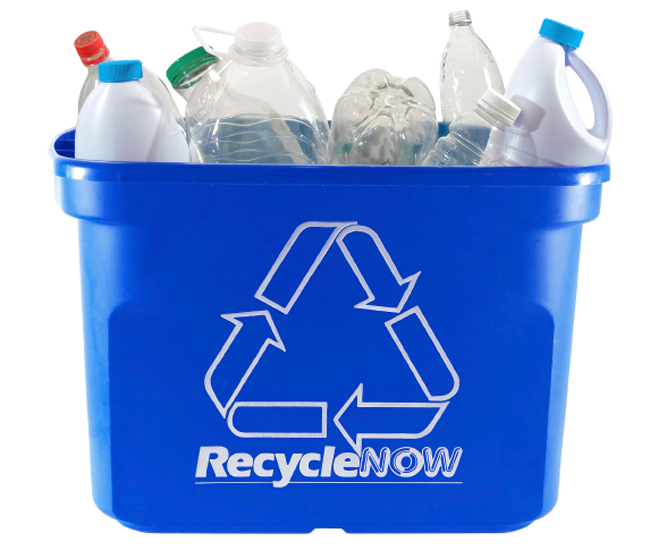Waste management plants needed in regions

By Aynur Karimova
Our planet is literally choking on garbage, because every day each of us throws out the trash. As is known, nothing disappears in nature, everything returns to a natural cycle. Plastics are not an exception either.
Plastic has become the most commonly used material since the beginning of the 20th century and modern life is unthinkable without it. Unfortunately, what makes it so useful, its durability, light weight, and low cost, also makes it problematic when it comes to its end of life phase.
Despite the fact that the scale of the waste management problem has been significantly reduced in Azerbaijan, there is still much more work to be done.
Statistics show that every resident of capital Baku throws out on average 200-250 grams of garbage daily.
Telman Zeynalov, an ecologist and Chairman of the Environmental Council under the Ministry of Ecology and Natural Resources of Azerbaijan, told local media that Azerbaijan needs to construct 64 waste management plants in Azerbaijan's regions to recycle this plastic waste.
"If five years ago there were about 2,000 unauthorized landfills and one sanctioned Balakhani landfill side in Baku, this is no longer a problem in the capital," he said. "However, the problem persists in the regions of the country."
The ecologist believes that the issue becomes more complicated due to the large amount of plastic waste, which does not substantially decompose.
Zeynalov went on adding that he and USAID have conducted a social project to study how much waste is thrown out by every citizen.
"Some 140 residents of the capital were given special garbage bags and scales. They were required to weigh the daily garbage accumulated, and record the results in a special notebook. As a result of calculation, we found out that on average, each inhabitant of our capital discards about 90 kilograms of waste per year," the ecologist said. "These figures sharply differ from the statistics for the well developed European countries. In Europe residents produce much more garbage, and it is not surprising, because the more the country is developed and the citizens have better living conditions, the more garbage they throw out every day."
The production of plastic uses around eight percent of the world’s oil production. Annually, approximately 500 billion plastic bags are used worldwide. More than one million bags are used every minute.
The massive pollution to the environment from plastic debris is emerging as a global challenge that requires a global response. Paper decomposes within 2-5 months in nature, cigarette butts within 1-12 years. Plastics, unfortunately, practically don't decompose and are a real disaster for the environment.
The world’s oceans are literally overflowing with plastic waste, mainly with packaging materials such as bottles and plastic bags. About 95 percent of seabirds in the North Sea carry plastic garbage in their stomachs. According to research from the UN, one million sea birds and 100,000 marine mammals are killed annually from plastic in our oceans.
The German environmental organization Deutsche Umwelthilfe (DUH) estimates that each year one trillion plastic bags are used worldwide. And only a tenth of them are recycled.
The EU has set a goal to limit the use of plastic bags, taking into account the fact that the plastic, the decomposition of which takes a few hundred years, harms the environment.
Janez Potočnik, the EU Commissioner for the Environment, insists on prohibiting plastic bag production in the future.
Waste burning prohibited
While earlier, waste in Baku was often burned, today this practice practically does not occur. The government is taking legal measures on this issue.
In his remarks Ragub Mirzayev, a section head at the Department of Environmental Protection of the Ecology and Natural Resources Ministry, said if the 'hot line' of the ministry receives an appeal in this regard, the staff visits the site, and if the information is confirmed, draws up a report under article 110 of the Administrative Violations Code.
According to the Code, physical entities can be fined anywhere from 500 to 800 manats, officials from 2,000 to 3,000 manats, and legal entities from 6,500 to 8,000 manats for burning trash.
If the fined person does not respond to administrative measures, a repeated procedure of administrative punishment will be enforced. In this case, the persons are being fined under the article 319 of the Administrative Violations Code. Then, the amount of the penalty is increased; physical entities are then fined in an amount from 600 to 900 manats, officials from 3,000 to 4,800, and legal entities from 15,000 to 18,000 manats.
"Thanks to such high fines and the effective work of the Ecology and Natural Resources Ministry, the number of waste combustion cases has been decreasing from year to year," Mirzayev said.
When household waste is burned, it releases dioxins into the air, which are a highly toxic substance. As a result, the burning of waste is prohibited in most countries.
The scientific journal Nature has published research carried out by Canadian scientist Daniel Hoornweg that states that the citizens in cities emit waste at twice the rate of villagers.
Landfills of Bordeaux Poniente in Mexico City and Laogang in Shanghai compete for the title of the world's largest 'garbage hole'. Every day about 10,000 tons of garbage is being thrown into these landfills.
--
Aynur Karimova is AzerNews’ staff journalist, follow her on
Twitter: @Aynur_Karimova
Follow us on Twitter @AzerNewsAz
Here we are to serve you with news right now. It does not cost much, but worth your attention.
Choose to support open, independent, quality journalism and subscribe on a monthly basis.
By subscribing to our online newspaper, you can have full digital access to all news, analysis, and much more.
You can also follow AzerNEWS on Twitter @AzerNewsAz or Facebook @AzerNewsNewspaper
Thank you!
